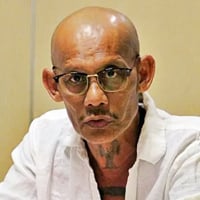
PETALING JAYA: For many urban Malaysians, a trip to the nearest clinic is not an arduous affair, but in Sarawak’s rural communities, a visit to a clinic can take days, traversing through dirt roads and rivers.
The ordeal faced by the rural community is due to the lack of infrastructure such as roads connecting the villagers to the nearest town where clinics are located.
That’s why 30-year-old Dr Marcos Popey Jarith and his team have made it their mission to provide medical aid such as outpatient care, child immunisation and family planning to these underserved communities.
Based in the Belaga town in Kapit, located about 522km from Kuching, Jarith’s team, which comprises a medical doctor, a medical assistant, and two nurses, visit a total of 32 rural villages on a monthly basis.
“We visit 11 villages for our land medical outreach, 11 villages for our river medical outreach, and 10 villages during our Flying Doctor Services,” he told FMT.
“We reach the communities along the Rajang River using boats. We also have flying doctors for areas inaccessible by land or river.”
Despite the challenges such as long travel time between each village, Marcos and his team remain resolute, driven by the urgent need for medical assistance in these areas.
“I see it is my obligation to serve the rural communities, as healthcare is a basic human right. I hope more young Malaysian doctors will take up the challenge to work in rural areas.”
A week’s walk away
Ambrose Dango, a villager from Kampung Mayang Kawan, Serian, said volunteer healthcare workers such as Jarith and his team are a boon for those living in the rural area.
In his growing up years, the nearest clinic to his village was in Serian town, a week’s week away.
“My mother would have to walk and carry me to the clinic. It would take us almost a week. We’d have to walk through the forest because back then, there were no roads,” said Dango, now a lecturer at University Malaysia Sarawak.
Though conditions have improved for his village, Dango said there are many rural areas in Sarawak that still lack proper infrastructure, including roads, treated water, and electricity supply, which exacerbates the problem.
The root of the problem
In 2020, Kuching MP Dr Kelvin Yii said 98 out of 215 rural clinics in Sarawak do not have a doctor and are run by medical assistants and nurses.
Last year, it was also reported that Sarawak’s mortality rate among infants was 14% higher than the national average, with the Bumiputera communities in the rural areas contributing the most to the high mortality rate.
Sarawak deputy premier Dr Sim Kui Hian said this was due to a lack of health infrastructure and equipment, which he attributes to the insufficient funding by the federal government.

Human rights activist Peter John Jaban said Sarawak’s healthcare infrastructure is behind other states because it is under federal control.
“Healthcare needs to be decentralised to allow a more fine tuned response in a local context,” he said.
“Voluntary initiatives and some NGOs are at work, such as Mercy Malaysia. But in a country which supplies universal healthcare, this kind of provision should be under the health ministry,” he told FMT.
Jaban said, if the healthcare challenge in rural Sarawak is not taken care off, the community will continue to suffer, adding that it could be fatal for the community.
“Those who make it down to health facilities will be significantly impoverished. There is no more troubling concern than this in a modern society.” - FMT



No comments:
Post a Comment
Note: Only a member of this blog may post a comment.